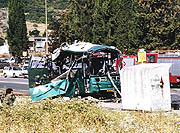On February 16th the BBC News website chose to feature a fifteen year-old story on its ‘Middle East’ page using the headline “The unlikely hostel easing hostilities” and the sub-heading “An Arab-Jewish owned hostel caused controversy but is being held up as a symbol of change”.
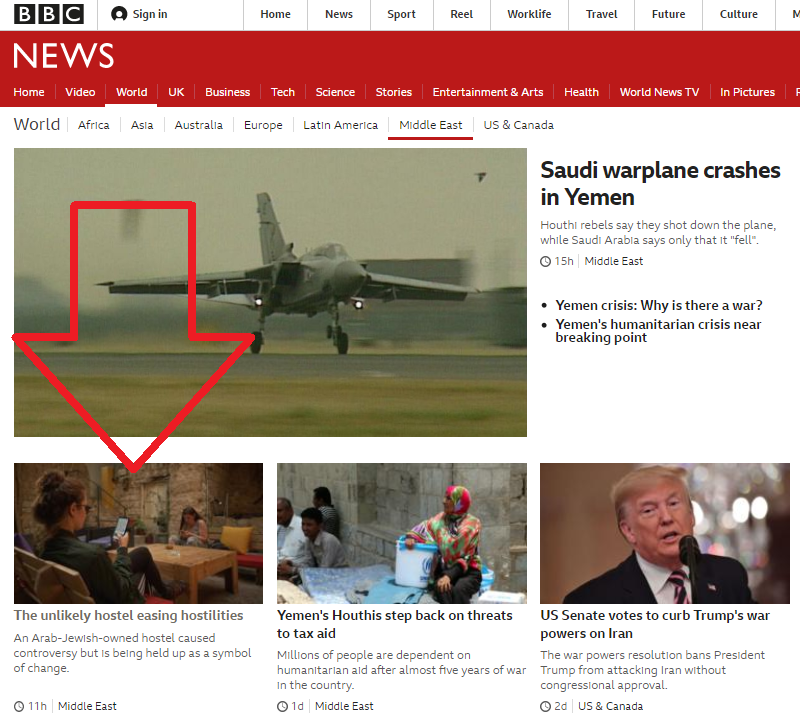
The article itself – credited to a US-based freelancer called Lucy Sherriff who briefly visited Israel two months ago – is headlined “Crossing Divides: The hostel promoting tourism to ease Israel’s tensions” and it also appears on the BBC News website’s page devoted to “Crossing Divides” which is described as “A season of stories about bringing people together in a fragmented world.”
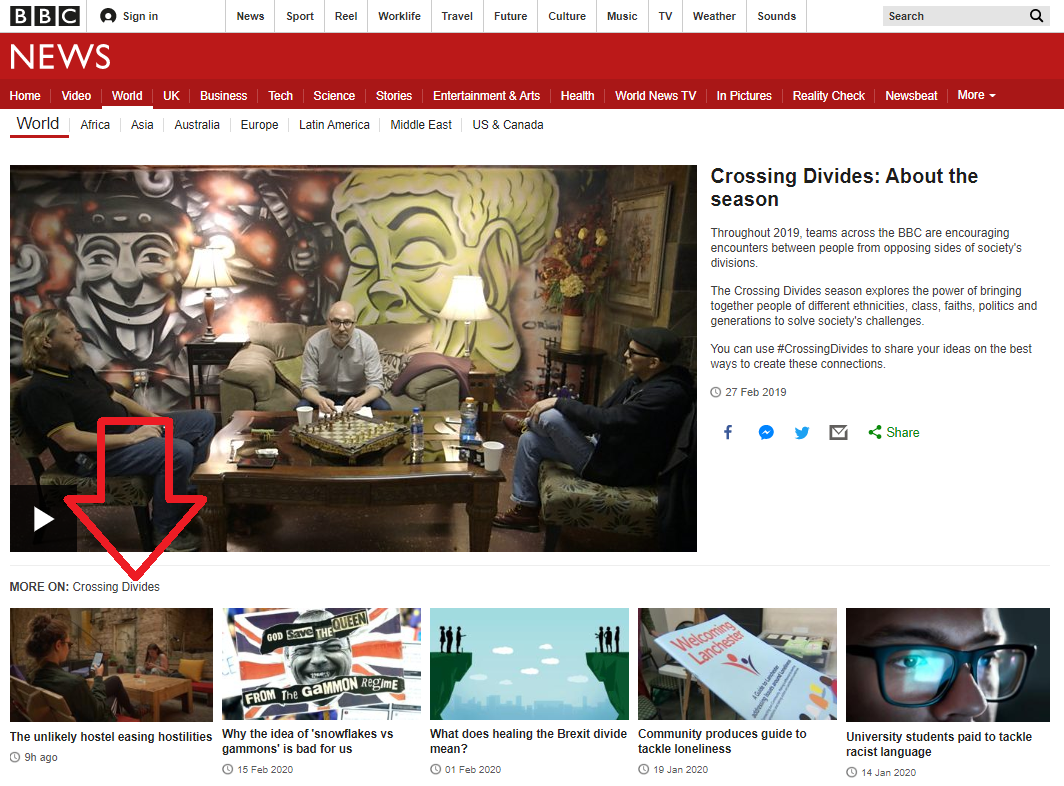
That, apparently, is the sole explanation for the BBC’s publication of a story which has been told on many occasions by various media outlets and other organisations, as well as by the entrepreneurs themselves, since the hostel first opened in Nazareth in 2005 just as the Second Intifada, which severely impacted tourism in Israel, was coming to an end.
The messaging that Sherriff wishes to promote is amply clear.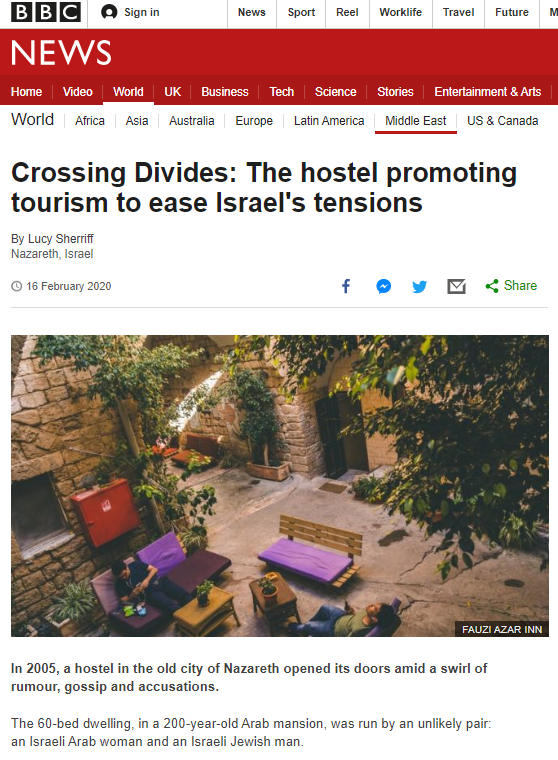
“An Arab-Jewish owned hostel caused controversy but is being held up as a symbol of change”
“After gruelling and lengthy renovations the hostel opened its doors to the public, and the tourists started to come.
“We definitely had some hard times,” Maoz says. “But now we see the whole old city has changed and there are so many shops and cafes and other hostels that have opened up because we have been here. I worked hard to meet everybody in the community, so they knew that I was here as a friend, and to help.”
Despite no longer living in Nazareth, Maoz still knows most of the shopkeepers by name, and is credited with helping to heal tensions and bring Jewish visitors into the city.”
Sherriff underlines her messaging with quotes and a five-year-old paper from an academic.
“”When I first heard about this hostel opening, I thought wow… this is unusual,” says Alon Gelbman, a professor of tourism management at Kinneret College in Galilee [sic]. “But it became a success story quite fast.” […]
A decade after the inn opened, Prof Gelbman decided to use Fauzi Azar as a case study for his paper on how tourism could be used to heal conflict and divided communities.
“The partnership became a symbol,” says Prof Gelbman. “Because we don’t see too much cooperation between Jews and Arabs.
“And the question we set out to answer was not ‘can peace promote tourism?’, but instead, ‘can tourism promote peace?’ Can we use tourism to encourage more peaceful and better relationships in communities?
“Can we use the fact that people are meeting each other, talking, becoming more familiar with other communities, to start a change, bottom-up?”
Prof Gelbman’s report, which he wrote with Daniel Laven, a professor at Mid Sweden University, concluded that tourism could indeed help create shared interests between communities that are characterised by cross-cultural conflict.”
“Shared interests” (as expressed in the article’s closing quotes from the two entrepreneurs) are of course not the same as “easing hostilities”, “heal[ing] conflict” or “promoting tourism to ease Israel’s tensions” and sharp-eyed Hebrew fluent readers may have noticed the political ‘Nakba’ graffiti in the background of the article’s second photograph.
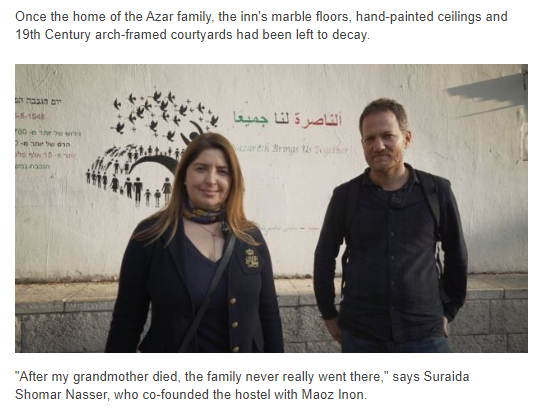
While the majority of visitors to the BBC News website will of course not click on the link to read the academic paper, those who do will find quotes from “Interviewee B” who is the same Suraida Shomar Nasser appearing in Sherriff’s article.
“Interviewee B described the importance of engaging guests in this story in very strong terms:
I sit with guests – [and] many of them are Jews – and I share with them that [my] grandpa [Fauzi Azar] fought against the occupation. And [sometimes they] ask me, “Do you still call it occupation?” I say, “Excuse me, maybe for me it is still occupation.”. … . Sharing this story with [our] guests is giving us [an opportunity] … to tell [visitors] that here are Arab Christians. Ok, we have Israeli identity cards but it doesn’t mean that we don’t feel [a sense of] belonging to the Palestinians, or we are not Palestinians anymore. […]
Interviewee B sees the guesthouse as a potential empowerment vehicle for acknowledging and validating her family’s experience in this conflict. This is important because of Interviewee B’s minority status in Israeli society. The tourism element is also important here because it is the inn’s guests that create the opportunity to share this experience. Without guests, there would be no audience with which to transfer the story.”
There is no obvious reason for the BBC’s decision to publish this article at this particular time beyond the fact that its messaging and agenda fit the ‘Crossing Divides’ mission of telling “stories about bringing people together in a fragmented world”. However what BBC audiences find is a superficial report by a freelance journalist with no known Middle East expertise on a brief visit to Israel which casts no new light on one already well-told story and makes no effort to provide background information and context to what it blandly touts as “Israel’s tensions” and “divided communities”.
Related Articles:
BBC again mainstreams ‘one-state’ without an explanation

